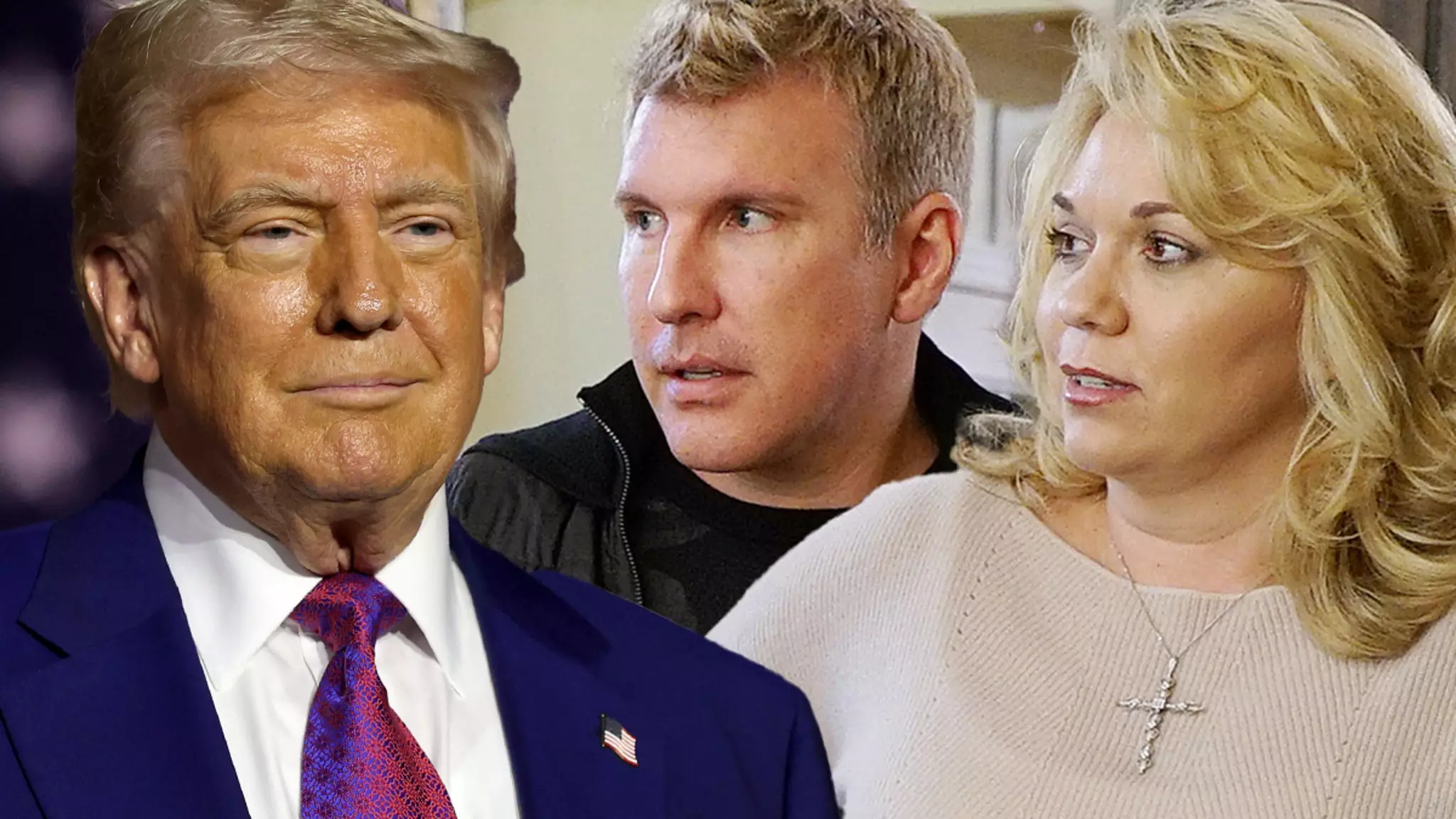Todd and Julie Chrisley have emerged from the shadows of scandal, not merely by regaining their freedom but potentially reclaiming substantial financial resources as well. In a move that has ignited debate across the nation, former President Donald Trump granted the couple a pardon, deeming their trial and subsequent sentencing unjust. This decision raises crucial questions about the intersection of justice, celebrity, and political influence in America.
The Chrisleys, who were handed sentences of over seven years for bank fraud and tax evasion, faced the daunting obligation of repaying a staggering $17 million in restitution. While they managed to pay a portion of that sum, the burden persisted, overshadowing their lives. With a presidential pardon, however, the shadow of unpaid restitution is lifted; federal law stipulates that such debts dissolve upon receiving this clemency. This aspect of pardoning carries profound implications, not just for the Chrisleys, but for how we perceive the judicial system’s role in punishing high-profile individuals.
Legal Repercussions and Victim Reimbursement
Interestingly, the complexities of the law introduce a twist: should any restitution be returned after the pardon, victims of these financial crimes might find themselves repaying the very funds they once received. While the exact contents of the pardon remain under wraps, the Chrisleys’ attorney has hinted at the possibility of a full financial reckoning. The legal ramifications of this scenario are weighty, as they present a unique opportunity to examine the consequences of judicial mercy. Given the media uproar, one must wonder if this situation will fundamentally alter public perception of justice for the affluent.
The couple’s case has been imbued with the flavor of contemporary politics. It is no coincidence that their legal troubles transpired during a time when political polarization reached alarming heights. Their daughter Savannah publicly criticized the prosecutors involved, suggesting that their convictions were influenced by prevailing political sentiments. This assertion not only frames the case as a personal vendetta but also highlights the broader implications for individuals within specific ideological circles.
Celebrity Status and the Legal System
The Chrisleys aren’t merely reality TV stars; they symbolize a unique intersection of fame and fortune in America. The notion that celebrity status can overshadow judicial fairness is alarming. This narrative prompts us to reflect on how the legal system delineates between the privileged and the underprivileged. The Chrisleys’ return to the spotlight has incited debates around parental influence, personal responsibility, and societal perceptions of success. More than just a legal outcome, their story resonates with anyone who wishes to navigate the treacherous waters of public opinion and moral judgment.
The pardon, heralded by their legal team as a victory for conservative values, challenges the foundational ideals of legal equity. While many might argue that every individual deserves a second chance, the broader implications of favoritism based on ideology cast a shadow on the integrity of the judicial system. In seeking to understand this convoluted narrative, we must evaluate the societal implications of the privileges afforded to individuals like the Chrisleys, examining the role that fame and influence play in their legal plight.

